Canadian farmers brace for climate change impact
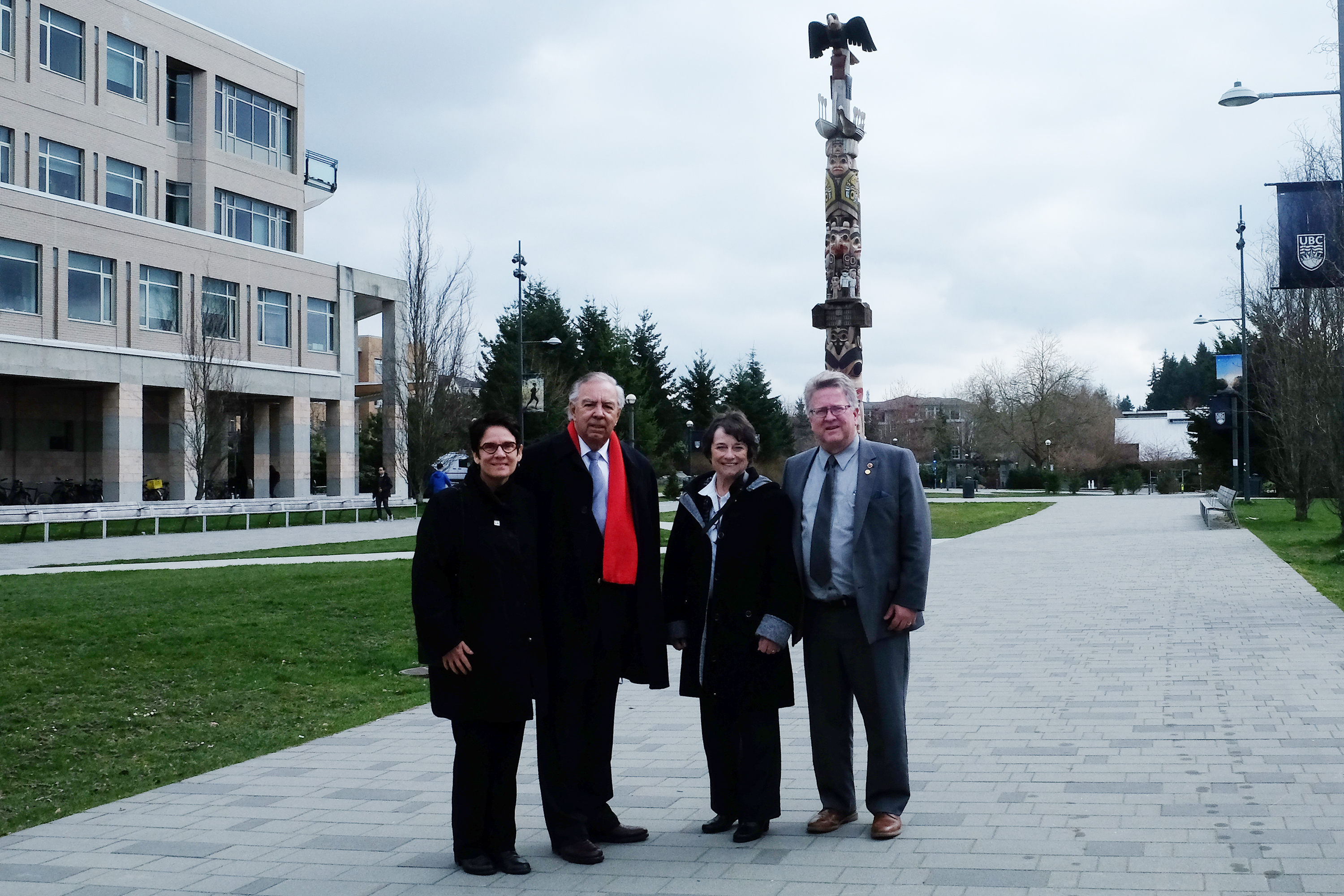
Wetter springs and hotter summers are forcing Canadian farmers and foresters to rethink decades-old practices as they grapple with the effects of climate change, experts told members of the Senate’s agriculture committee in March.
Members of the committee heard from farmers, academics and other experts from the Prairie provinces during four days of public hearings in Vancouver and Calgary during the week of March 19, 2018.
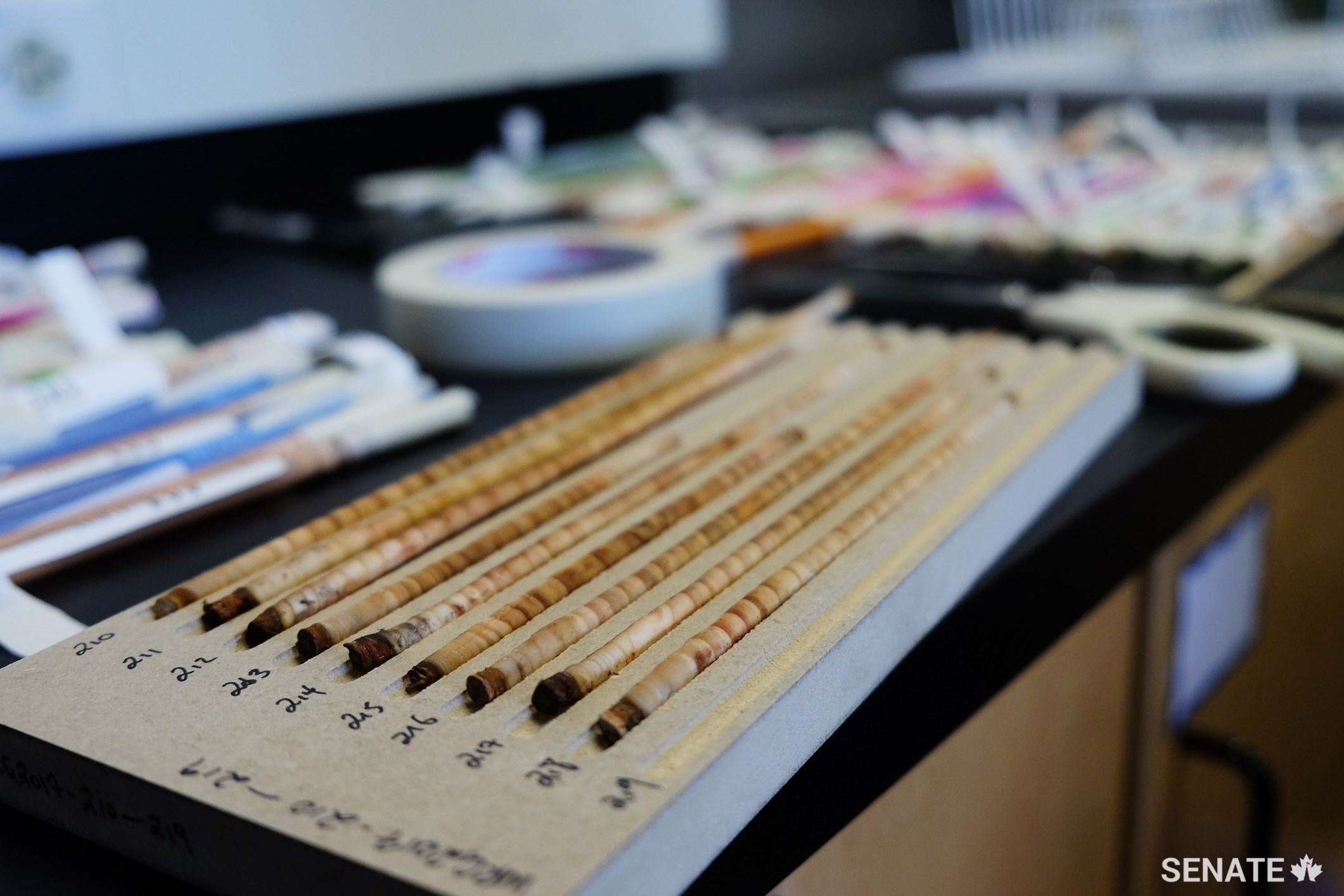
Senators Diane F. Griffin, Ghislain Maltais, Robert Black and Raymonde Gagné also took the opportunity to visit the University of British Columbia’s Forest Sciences Centre and the Fresh Roots program at Vancouver’s David Thompson Secondary School to gather facts for the committee’s study on the impact of climate change on farming and forestry. In Calgary, they took part in a question-and-answer session with University of Calgary environmental sciences, law and public policy students.
Farmers are facing more frequent droughts as a result of drier summers, witnesses said. They will need to be more creative about where their water comes from and how they use it to irrigate their crops and provide for their livestock. Shorter winters are allowing insects and invasive species to threaten crops and soil in a way they never could when cold weather killed them off.
“The effects of climate change on forestry and farming go hand in hand. Changes in forest fire patterns alter entire eco-systems. That has a detrimental effect on everything from species conservation to nearby farming and even on community safety,” said Senator Griffin, the committee’s chair.
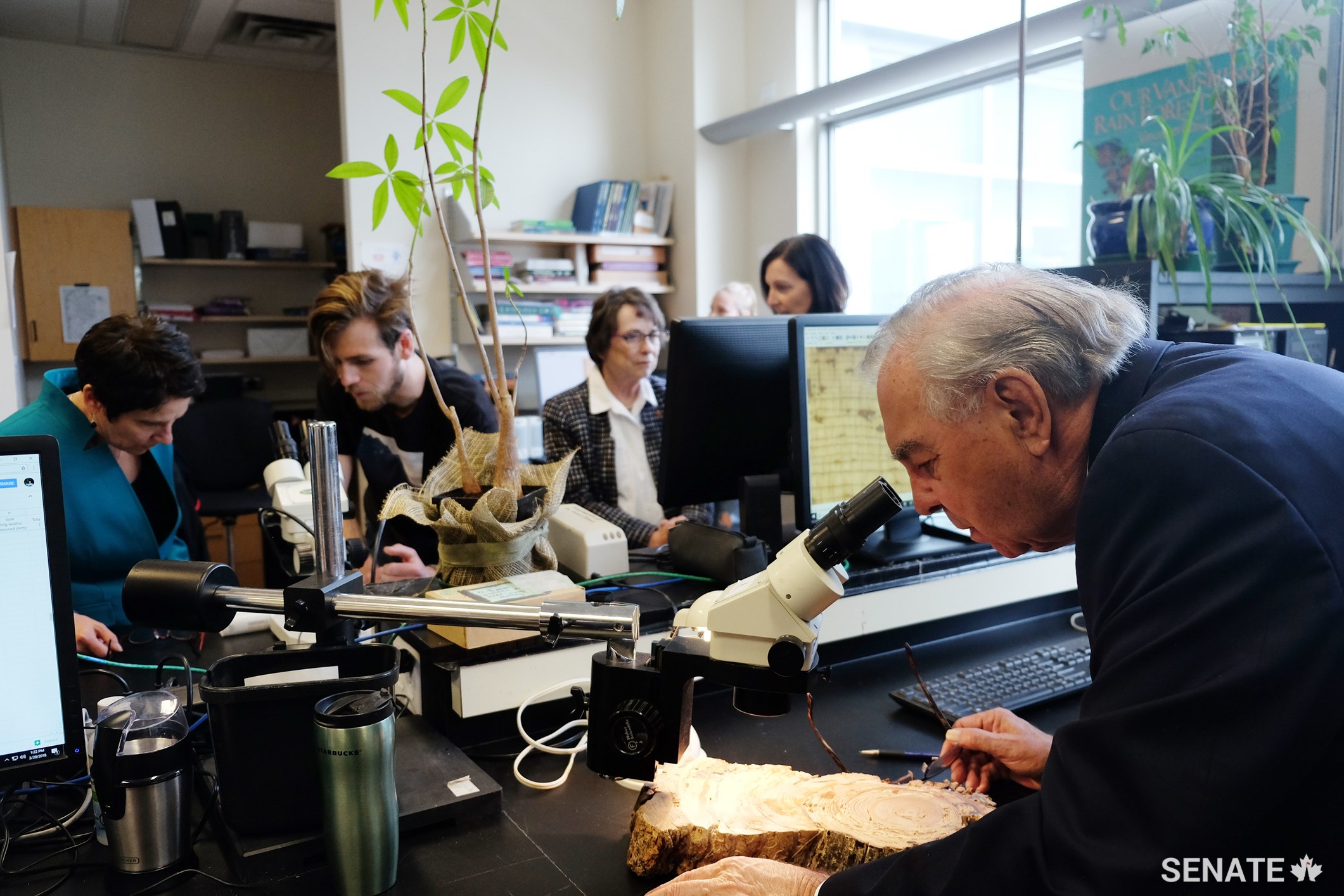
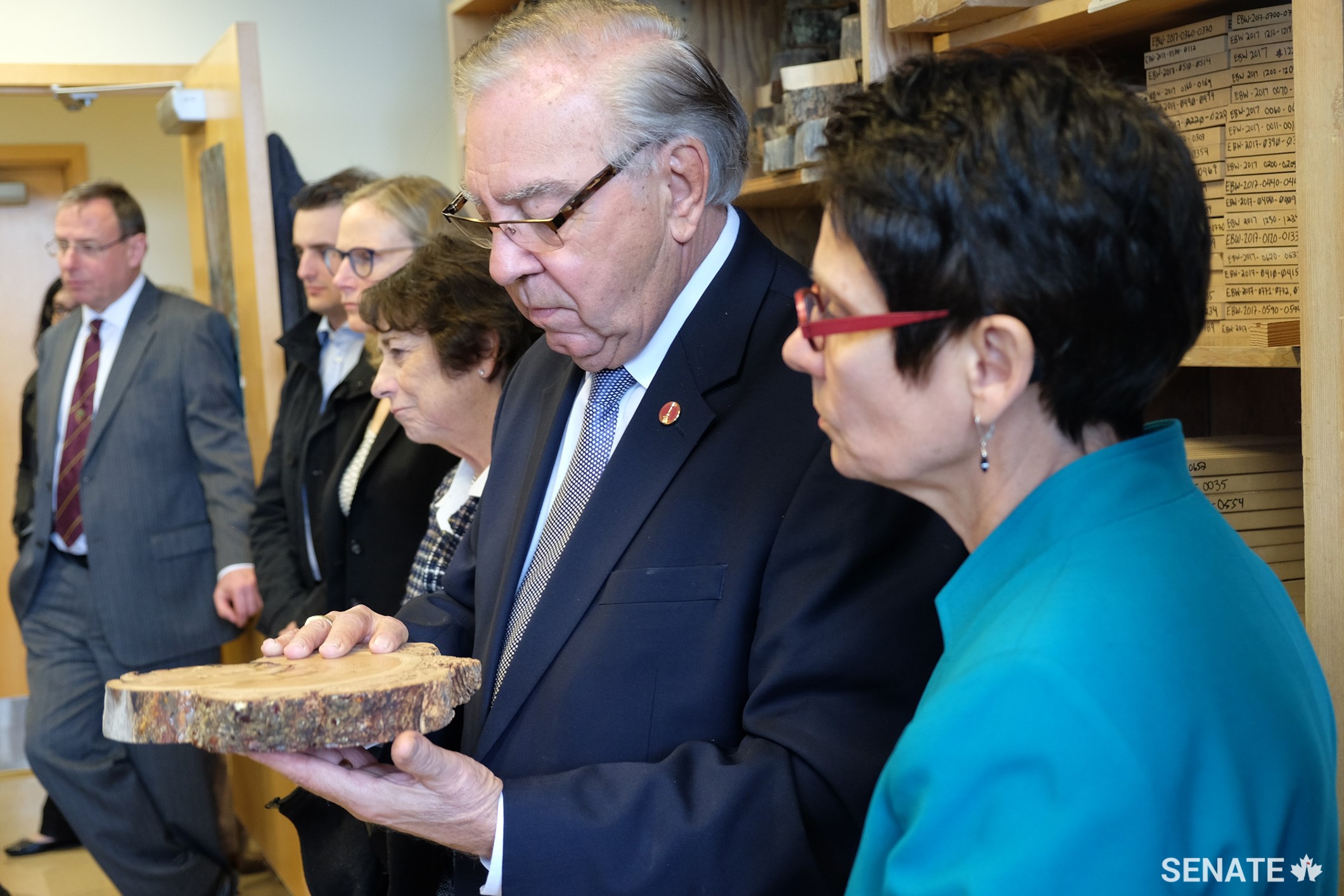
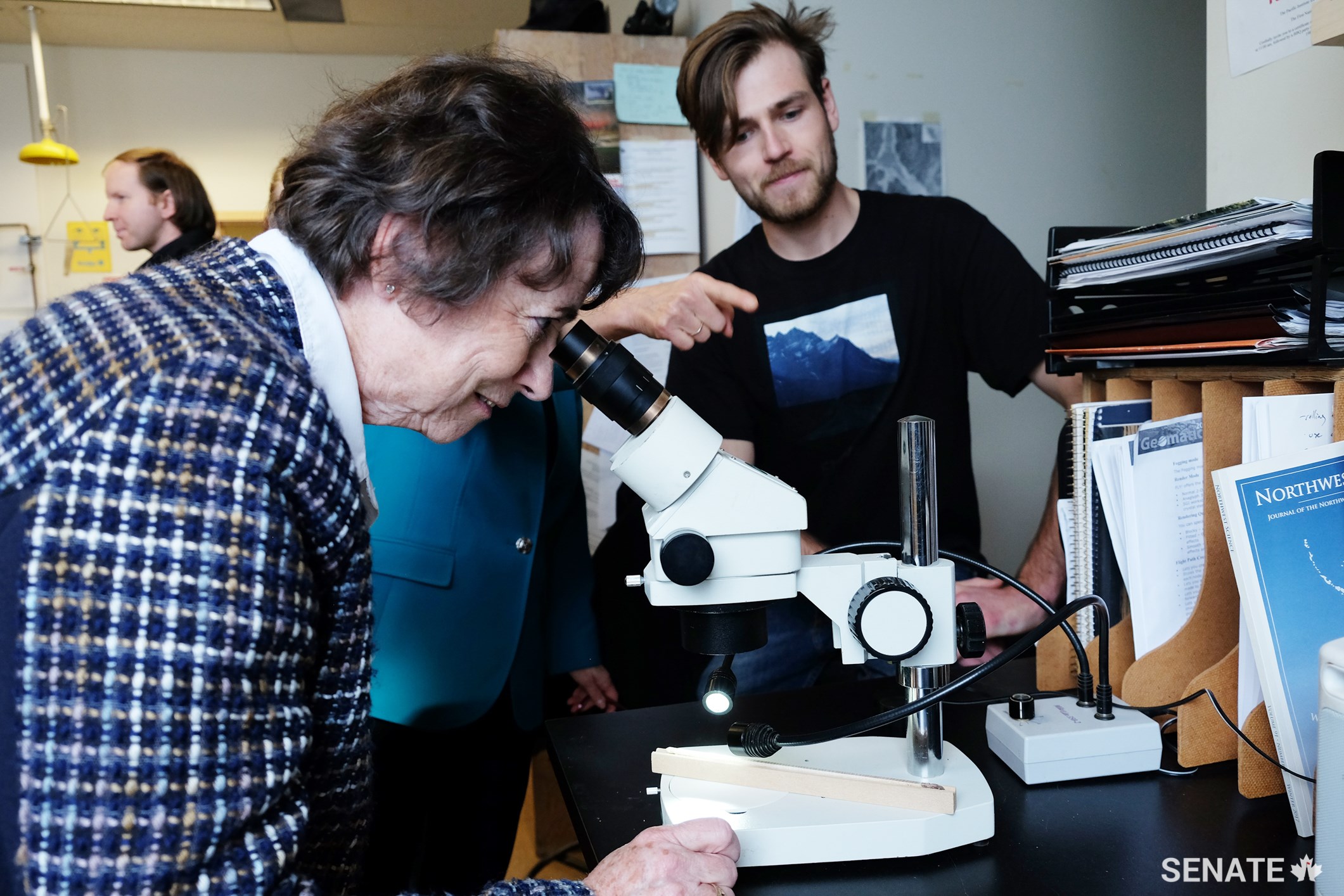
The committee is studying how Canada’s efforts to meet its greenhouse gas emissions reduction target might affect the country’s agriculture, agri-food and forestry sectors. Under the United Nations Framework on Climate Change, also known as the Paris Agreement, the Canadian government committed to reduce the country’s emissions to 30% below its 2005 level by 2030.
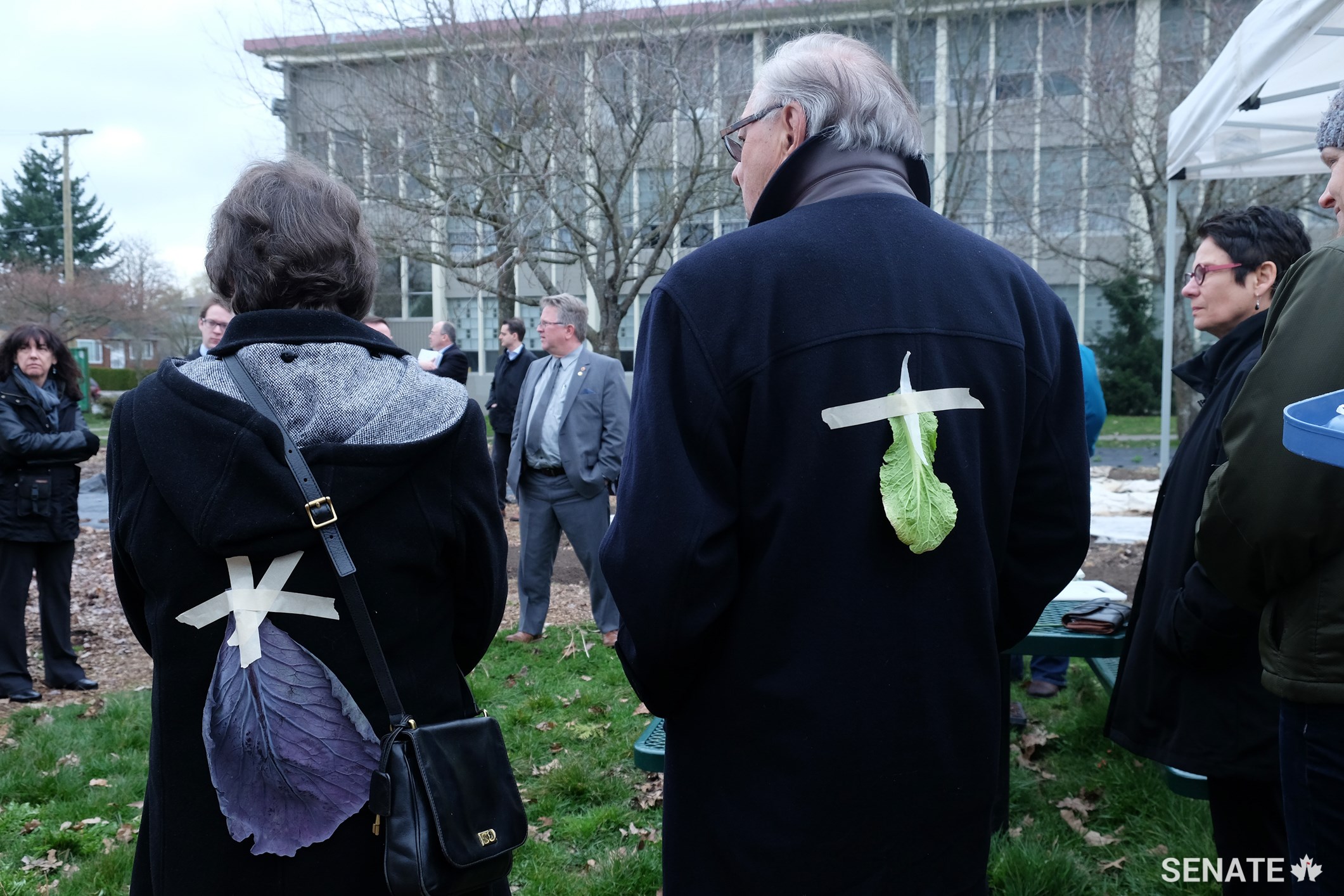
“Canada helps feed the world — half of its farm products are exported. Farmers need to keep meeting that demand, but they must do it in a way that is sensitive to the global goal of reducing greenhouse gas emissions,” said Senator Maltais, deputy chair of the committee. “Of course, we have to balance that with their need to make a living and to contribute to the economy. This committee wants to offer recommendations to help strike that balance.”
Experts said farmers in every region are already being affected by climate change in their own unique ways. Witnesses testified about how a wide range of climate-related issues affect farming, including the importance of developing innovative farming techniques and equipment, soil treatment, and grain sustainability and adaptation.
Farmers will need to better manage crops because less and less farmland will be available to them and there will be more stress on the soil that can be used.
The Senate Committee on Agriculture and Forestry is expected to release its report about the effects of climate change on farming later in 2018.

Related articles
Tags
Committee news
Canadian farmers brace for climate change impact

Wetter springs and hotter summers are forcing Canadian farmers and foresters to rethink decades-old practices as they grapple with the effects of climate change, experts told members of the Senate’s agriculture committee in March.
Members of the committee heard from farmers, academics and other experts from the Prairie provinces during four days of public hearings in Vancouver and Calgary during the week of March 19, 2018.

Senators Diane F. Griffin, Ghislain Maltais, Robert Black and Raymonde Gagné also took the opportunity to visit the University of British Columbia’s Forest Sciences Centre and the Fresh Roots program at Vancouver’s David Thompson Secondary School to gather facts for the committee’s study on the impact of climate change on farming and forestry. In Calgary, they took part in a question-and-answer session with University of Calgary environmental sciences, law and public policy students.
Farmers are facing more frequent droughts as a result of drier summers, witnesses said. They will need to be more creative about where their water comes from and how they use it to irrigate their crops and provide for their livestock. Shorter winters are allowing insects and invasive species to threaten crops and soil in a way they never could when cold weather killed them off.
“The effects of climate change on forestry and farming go hand in hand. Changes in forest fire patterns alter entire eco-systems. That has a detrimental effect on everything from species conservation to nearby farming and even on community safety,” said Senator Griffin, the committee’s chair.



The committee is studying how Canada’s efforts to meet its greenhouse gas emissions reduction target might affect the country’s agriculture, agri-food and forestry sectors. Under the United Nations Framework on Climate Change, also known as the Paris Agreement, the Canadian government committed to reduce the country’s emissions to 30% below its 2005 level by 2030.

“Canada helps feed the world — half of its farm products are exported. Farmers need to keep meeting that demand, but they must do it in a way that is sensitive to the global goal of reducing greenhouse gas emissions,” said Senator Maltais, deputy chair of the committee. “Of course, we have to balance that with their need to make a living and to contribute to the economy. This committee wants to offer recommendations to help strike that balance.”
Experts said farmers in every region are already being affected by climate change in their own unique ways. Witnesses testified about how a wide range of climate-related issues affect farming, including the importance of developing innovative farming techniques and equipment, soil treatment, and grain sustainability and adaptation.
Farmers will need to better manage crops because less and less farmland will be available to them and there will be more stress on the soil that can be used.
The Senate Committee on Agriculture and Forestry is expected to release its report about the effects of climate change on farming later in 2018.



